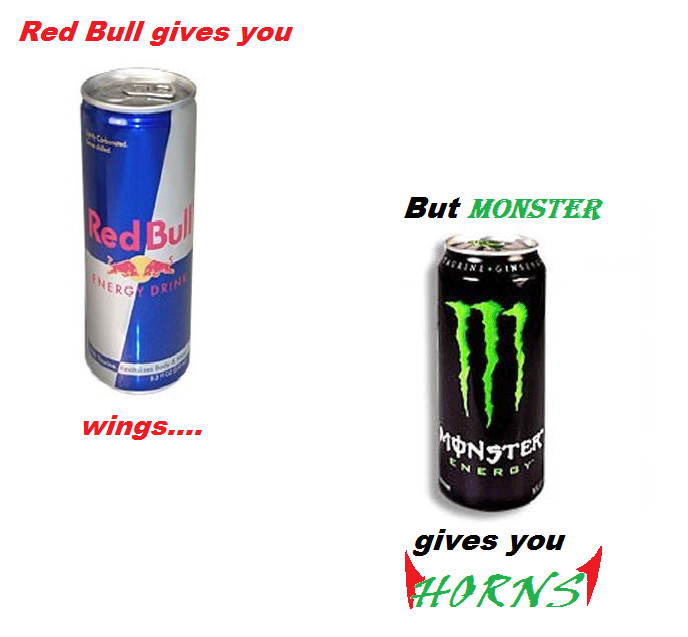I'm pretty sure most people have one "go-to" beer they love, live by, and enjoy whenever it's available. For me it's Guinness....mmmmmm. I love Guinness because it's got a really creamy, rich taste with hints of chocolate and coffee. It's so freaking delicious! To be honest though, I think what I love even more about Guinness is that it has more flavor than any regular beer I've ever tasted, yet it only has a few more calories than most light beers. 125 calories per bottle...that's it. I'm glad to say I've found a healthier-ish beer that I really love. Check out the list below for the calories, carbs, and alcohol percentage in your own personal favorite beer, as well as a few of my recommended "lean" beers. Oh....and remember this, one beer every once in a while can actually help lower your LDL cholesterol (the bad kind) and have a positive impact on your health, so enjoy. Keep it to two or fewer though--drinking three of more beers diminishes the cholesterol lowering effects and promotes obesity, diabetes, cancer, and of course body fat gain.
 All nutrition facts are per 12 oz. (standard bottle). Beers with a great combination of taste and low calories/carbs, aka lean beers, are highlighted in yellow.
All nutrition facts are per 12 oz. (standard bottle). Beers with a great combination of taste and low calories/carbs, aka lean beers, are highlighted in yellow.- Amstel Light: 95 cals, 5g carbs, 3.5% ABV (alcohol by volume)
- Beck's Dark: 142 cals, 10g carbs, 4.8% ABV
- Beck's Oktoberfest: 135 cals, 8g carbs, 5% ABV
- Beck's Pilsner: 138 cals, 9g carbs, 5% ABV
- Beck's Premier Light: 63 cals, 3.8g carbs, 2.3% ABV
- Blue Moon Belgian White: 171 cals, 13g carbs, 5.4% ABV
- Blue Moon Nut Brown Ale: 169 cals, 13.5g carbs, 5.4% ABV
- Blue Moon Pumpkin Ale: 182 cals, 17.7g carbs, 5.8% ABV
- Budweiser: 145 cals, 10.6g carbs, 5% ABV
- Bud Ice: 148 cals, 8.9g carbs, 5.5% ABV
- Bud Ice Light: 110 cals, 6.5g carbs, 4.1% ABV
- Bud Light: 110 cals, 6.6g carbs, 4.2% ABV
- Bud Light Lime: 116 cals, 8g carbs, 4.2% ABV
- Bud Select: 99 cals, 3.1g carbs, 4.3% ABV
- Bud Select 55: 55 cals, 1.9g carbs, 2.4% ABV
- Busch: 133 cals, 10.2g carbs, 4.6% ABV
- Busch Light: 95 cals, 3.2g carbs, 4.1% ABV
- Colt 45 Canada: 223 cals, 14.5g carbs, 8.1% ABV
- Colt 45 Malt Liquor: 157 cals, 10.8g carbs, 5.6% ABV
- Coors Light: 102 cals, 5g carbs, 4.2% ABV
- Coors: 142 cals, 10.6g carbs, 5% ABV
- Corona Extra: 148 cals, 13g carbs, 4.6% ABV
- Corona Light: 106 cals, 5g carbs, 4.5% ABV
- Dos Equis XX Amber: 146 cals, 11.6g carbs, 4.8% ABV
- Dos Equis XX Large: 142 cals, 10.5g carbs, 4.8% ABV
- Foster's: 144 cals, 11.2g carbs, 5% ABV
- Guinness Draught: 126 cals, 10g carbs, 4% ABV
- Guinness Extra Stout: 176 cals, 14g carbs, 6% ABV
- Harp: 151 cals, 12.8g carbs, 5% ABV
- Heineken: 166 cals, 9.8g carbs, 5.4% ABV
- Heineken Light: 99 cals, 6.8g carbs, 3.5% ABV
- Icehouse: 132 cals, 8.7g carbs, 5% ABV
- Icehouse Light: 103 cals, 5.5g carbs, 4.1% ABV
- Killian's Irish Red: 163 cals, 14.4g carbs, 4.9% ABV
- Keystone Ice: 143 cals, 6.6g carbs, 5.9% ABV
- Keystone Light: 104 cals, 5.1g carbs, 4.2% ABV
- Magic Hat Beer #9: 153 cals, 14.2g carbs, 4.6% ABV
- Michelob Amber: 114 cals, 3.7g carbs, 5% ABV
- Michel Amber Boch: 166 cals, 15g carbs, 5.2% ABV
- Michelob Lager: 155 cals, 13.3g carbs, 5% ABV
- Michelob Light: 123 cals, 8.8g carbs, 4.3% ABV
- Michelob Ultra: 95 cals, 2.6g carbs, 4.2% ABV
- MGD 64: 64 cals, 2.4g carbs, 2.8% ABV
- Miller Chill: 110 cals, 6.5g carbs, 4.2% ABV
- Miller Genuine Draft: 143 cals, 13.1g carbs, 4.7% ABV
- Miller Genuine Draft Light: 110 cals, 7g carbs, 4.2% ABV
- Miller Lite: 96 cals, 3.2g carbs, 4.2% ABV
- Milwaukee's Best: 128 cals, 11.4g carbs, 4.3% ABV
- Milwaukee's Best Ice: 144 cals, 7.3g carbs, 5.9% ABV
- Milwaukee's Best Light: 98 cals, 3.5g carbs, 4.2% ABV
- Milwaukee's Best Premium: 128 cals, 11.4g carbs, 4.3% ABV
- Natural Ice: 157 cals, 8.9g carbs, 5.9% ABV
- Natural Light: 95 cals, 3.2g carbs, 4.2% ABV
- Newcastle Brown Ale: 138 cals, 12.8g carbs, 4.5% ABV
- Pabst Blue Ribbon: 153 cals, 12g carbs, 5% ABV
- Peroni: 150 cals, 11.4g carbs, 5% ABV
- Red Stripe: 153 cals, 14g carbs, 5% ABV
- Rolling Rock: 132 cals, 10g carbs, 4.5% ABV
- Sam Adams Boston Lager: 175 cals, 18g carbs, 4.9% ABV
- Sam Adams Cherry Wheat: 176 cals, 16.9g carbs, 5.3% ABV
- Sam Adams Cherry Stout: 195 cals, 24g carbs, 4.7% ABV
- Sam Adams Imperial Stout: 307 cals, 9.2% ABV
- Sam Adams Light: 119 cals, 9.7g carbs, 4.1% ABV
- Sam Adams Octoberfest: 183 cals, 19g carbs, 5.3% ABV
- Sam Adams Old Fezziwig Ale: 213 cals, 5.8% ABV
- Sam Adams Summer Ale: 162 cals, 10g carbs, 5.3% ABV
- Sam Adams White Ale: 166 cals, 17g carbs, 5.3% ABV
- Sam Adams Winter Lager: 200 cals, 20g carbs, 5.6% ABV
- Sapporo Premium: 140 cals, 10.3g carbs, 4.9% ABV
- Sol Cerveza: 143 cals, 11g carbs, 4.8% ABV
- Sierra Nevada Bigfoot: 330 cals, 30.3g carbs, 9.9% ABV
- Stella Artois: 154 cals, 11.6g carbs, 5.2% ABV
- Tecate: 142 cals, 12g carbs, 4.5% ABV
- Yuengling Ale: 145 cals, 10g carbs, 5% ABV
- Yuengling Premium: 135 cals, 12g carbs, 4.4% ABV
- Yuengling Light: 98 cals, 6.6g carbs, 3.8% ABV

If your favorite beer isn't here let me know and I'll get you the facts!







